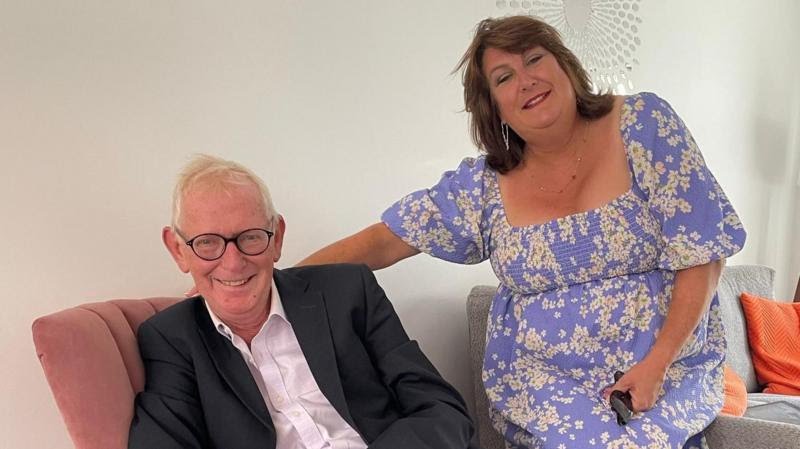Perry Evans, one of the first persons to give evidence at the Infected Blood Inquiry, died just five weeks ago, missing the release of a critical report on the scandal.
His wife, Heather Evans, sat by his picture as Sir Brian Langstaff read key findings from the 2,575-page report.
Heather found it overwhelming to see the results of years of campaigning without Perry. “My feeling at the start of the day was just so gutted that Perry was missing it,” she told BBC Radio 4’s Today programme.
The government is set to announce a full compensation scheme for victims. The inquiry found that authorities exposed people to high risks and covered up the NHS’s biggest treatment disaster. About 30,000 people were infected, and around 3,000, including Perry, have died.
Sir Brian shared Perry’s story in his findings on Monday. The audience gasped when they heard Perry had died so recently.
“That sigh went across the room,” said Heather, feeling the love and solidarity among infected blood campaigners.
Heather and other campaigners are grateful for the report, but still distrustful, waiting for the government’s announcement, asking, “Why was this not announced a year ago?”
Many shared Heather’s frustration. Some praised the prime minister’s apology, while others criticized the delay in setting up the compensation scheme.
Heather believed the government has learned nothing new from the report that was not known a year ago. “In that year, so many people have died. Including Perry.”
In 2022, Sir Robert Francis recommended compensation for victims regardless of the inquiry’s findings.
The UK government agreed on the moral case for compensation and paid £100,000 to 4,000 infected people.
Labour MP Dame Diana Johnson said the government’s delay in providing compensation after an interim report added more hurt.
Greater Manchester Mayor Andy Burnham has called for prosecutions related to the scandal. He supported Sir Brian’s call for a law to ensure civil servants tell the truth immediately, saying it is the only way to prevent future scandals.
It is worth noting that Perry met Heather in 1987, two years after being diagnosed with HIV from infected blood used to treat his haemophilia.
They were told he had two or three years to live, but they were married for nearly 36 years and had two children despite being told they could not.
Perry faced many health crises, but always survived. He lived well past his original prognosis, even after being diagnosed with HIV-related cancer in 2002 and surviving a coma in 2008.
Despite ongoing health issues, he made sure his family had great experiences.
Heather recalled how Perry always planned fun activities for them. Last November, he planned a series of events for Heather’s birthday, which they called “Showvember.”
Even after his death, Heather holds onto his legacy. “He saw our kids into adulthood and he saw our daughter get into theatre school,” she said. “He would want them to thrive and fly and absolutely fly.”




